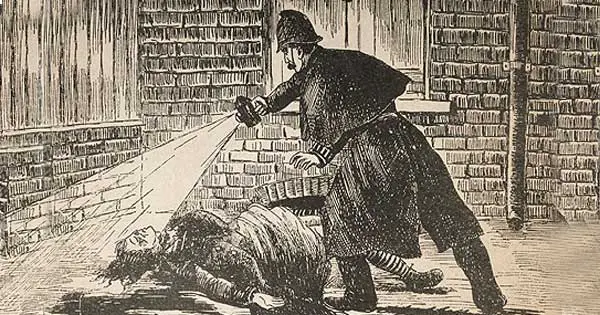There’s more than one way to trace your family tree in Ireland.
If you draw a blank with parish and church records, you could always turn to crime.
More than 18,000 records of Irish crimes, disturbances, criminals and victims have been published online by Findmypast.
If you feel sqeamish about the possibilty that one of your ancestors may have been a convicted criminal, remember that times were hard in Ireland in the 19th century.
Sometimes the theft of a sheep or a bag of potatoes was the only way to feed your fmaily. Many decent and otherwise law-abiding people were forced into ‘crime’ from time to time.
The penalties could be severe, with even minor misdemeanours often resulting in seven years deportation to Australia for penal servitude.
The crime records may help to fill a gap when tracing your Irish roots. And remember, your ancestors might also have been victims of crime rather than perpetrators.
In which case, the records may provide precious information about them not available anywhere else.
This new collection consists of thousands of outrage reports created by the Royal Irish Constabulary between 1836 and 1840.
The original reports were created by chief constables who were charged with writing a short summary of all incidents, crimes or disturbances that occurred within their county. These reports would then be sent to the Inspector General of the Constabulary.

The original records are held at the National Archives in London and come from the series HO 100: Ireland: Home Office correspondence on civil affairs.
The reports provide rare insights into the realities of life in historic Ireland and include descriptions of thefts, assaults, suicides, daring rescues, cases of infanticide, arson, highway robbery, and much more.
Each record includes both a transcript and scanned colour image of the original document. The details recorded in each report varied depending on the constable recording the event and the information available at the time of the incident.
Images of the original documents contain a short description of the event or offence reported. The records also record the details of victims of crime, such as William Gregg of Cavan whose house was burnt down by a disgruntled former tenant in 1840, as well as serving members of the Royal Irish Constabulary.
In many cases, only the victim’s name is recorded because the offender was unknown or had not been caught.
The publication marks a further step in Findmypast’s commitment to making Irish family history more accessible. In less than 5 years, Findmypast have made over 110 million records (with 300 million names) available online for the first time.
Brian Donovan, Irish Records expert at Findmypast, said: “Extreme poverty, sectarianism and political exclusion were features of Ireland in the 1830s, while at the same time the government tried to implement real reform measures like national education, electoral reform and the poor laws.
To maintain the peace Ireland had a large professionally trained police force (the Irish Constabulary) who were fortunately required to keep good records, like these Outrage reports. These reports are a fascinating insight into this time, documenting crime and dissent across the country when few other records exist.”
The records are available to search at findmypast.
You can also get an introduction to the meaning of hundreds of Irish surnames by clicking here.
newsletter.html”]
